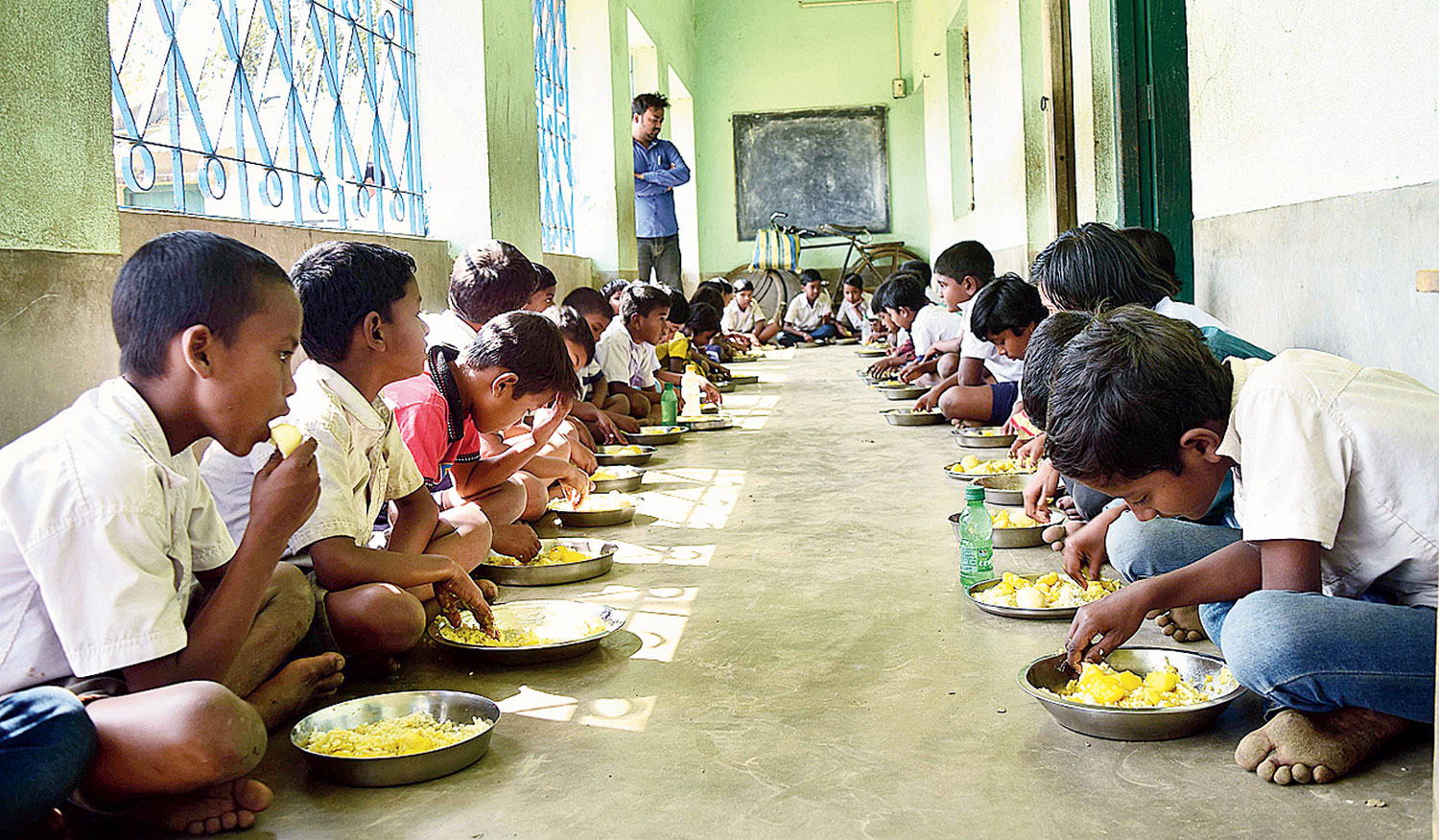Students of over 70,000 government primary and middle schools in Bihar will grow their own vegetables, and in some cases fruits too, for use in the midday meal scheme.
The education department has issued directions to all districts for the Ankuran (sprout) project under which kitchen gardens will be developed in schools that have land, while those that will seek farmland from the community.
Students from Classes I to VIII will grow the vegetable and fruits, and the state-wide push comes after the success of a pilot project at 100 schools in Purnea district.
“We have decided in principle to implement the Ankuran project in all primary and middle schools in the state to provide additional nutrients to the students under the midday meal scheme. The farming will be done in an organic manner. Modalities to implement it are being worked out,” said special secretary Vinod Kumar Singh, the midday meal scheme in-charge for the state.
Vinod said students will grow seasonal vegetables, with special emphasis on greens, to make them aware about food diversity, organic farming, importance of green vegetables in nutrition, and spreading the habit of consuming locally produced items. Teachers will guide the students.
Asked whether the scheme would not adversely impact the studies of children in primary and middle schools, Singh replied in the negative.
“On the contrary the project will be in line with the nai taleem or basic education concept of Mahatma Gandhi in which emphasis is laid on enhancing practical and vocational knowledge also of pupils,” he added.
Purnea regional deputy director of education Chandra Prakash said the experiment gave high yield of organic vegetables such as tomato, pumpkin, brinjal, radish, mushrooms and various types of gourds.
Sources in the education department said the agriculture department, the Krishi Vigyan Kendra (KVK) run by the central government, the Sarva Shiksha Abhiyan, health department, agriculture universities, Unicef and other agencies would help in implementing the project.
“Organic farming at mass level in Bihar could spread only if schools and other such institutions develop as centres of organic farming. It will also impart practical knowledge to children,” said Ishteyaque Ahmad, senior campaigner for sustainable agriculture with Greenpeace.
Such school farming schemes are either being implemented or are in the offing in several states including Uttar Pradesh, Punjab, Andhra Pradesh, Telangana, Uttarakhand, Kerala, Himachal Pradesh, Maharashtra, and Gujarat.











